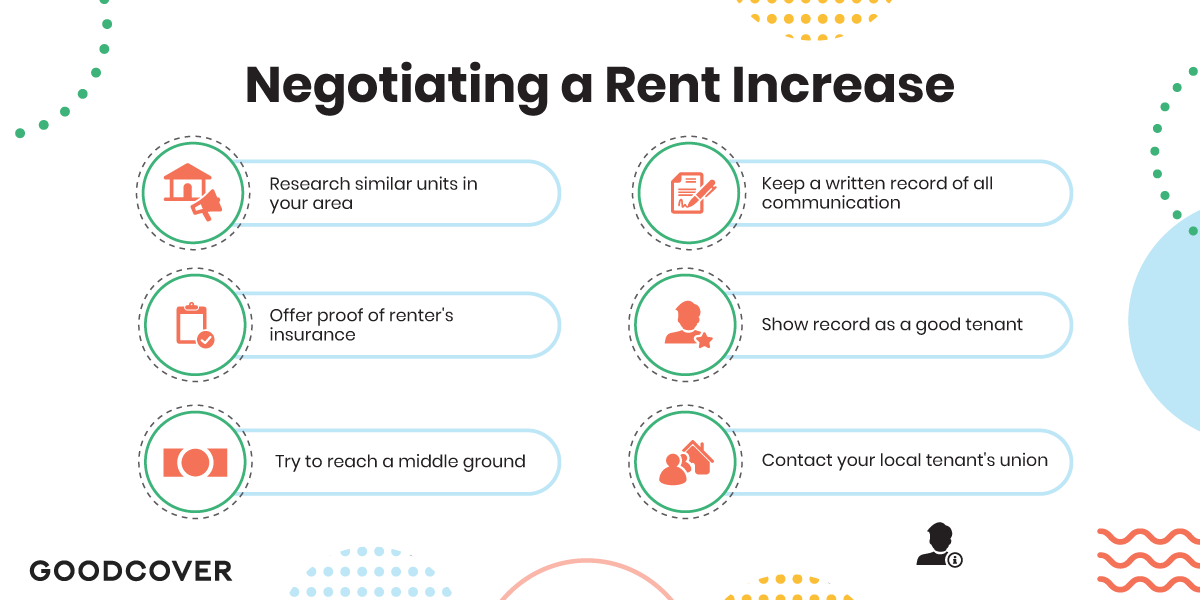How To Prepare for a Rent Increase in Texas
26 May 2023 • 6 min read

While Texas has long been known as a low-cost-of-living state, the Lone Star State hasn’t been immune to the recent rent hikes.
Even a small city like Odessa, Texas, had the second fastest-growing rent price in the U.S. for a three-bedroom single-family home in March 2023. The average monthly rent there was $1,898 a month, an increase of about 26% over March 2022.
Some big cities in Texas are finally seeing a slowdown after years of increase, but the overall growth in rent is putting pressure on tenants. In the Dallas Ft. Worth area, for example, rents are up 21% since March 2020 (as of April 2023).
But even though rent prices are surging, renters have some legal protections, thanks to Texas rent increase laws. Texas landlords may hold a lot of power, but as Texas Tenant Advisor notes, you still have legal rights.
Let us provide y’all with some information on your rights as a tenant, what to look out for, and how to negotiate a lower rent increase with your landlord.
- Are There Any Rent Control Laws in Texas?
- Are Rent Increases Ever Illegal in Texas?
- Negotiating a Rent Increase
- How Renter’s Insurance Can Help You During a Rent Negotiation or Move
- Final Thoughts: How To Prepare for a Rent Increase in Texas
Are There Any Rent Control Laws in Texas?
In Texas, state law prohibits most rent control plans. However, there are temporary rent stabilization laws that can be implemented on a city level during a declared emergency. It’s important to note that once the state of disaster is over, the rent control disappears.
On a brighter note, Texas landlord-tenant laws forbids your landlord from raising the rent on a whim or as a punishment. So if your landlord is trying to increase your rent because you’ve been making complaints about your apartment’s condition, don’t worry — they can’t legally retaliate against you, you’ve got rights!
You can download the Tenant’s Rights Handbook from the Texas Young Lawyers Association for an easy reference guide to your tenant rights in Texas.
If you made any requests or complaints in the past six months and believe your landlord is raising your rent because of that, you may want to contact a tenant advocacy group like the Texas Tenant Advisors. Your landlord will have to prove their action is not retaliatory (e.g., raising rents for all of their tenants might show they are not singling you out).
Are Rent Increases Ever Illegal in Texas?
The only times that rent increases are illegal in Texas are:
- When they are made in the middle of a fixed-term lease.
- If they are made without a proper notice period (usually 30 days).
- If they are made during a temporary disaster rent increase freeze.
- If they are discriminatory in nature (e.g., increasing rent due to race or gender).
- If they are made in retaliation.
Otherwise, rent increases of any kind are fair game in Texas.
What Is the Maximum Rent Increase Allowed in Texas?
There is no maximum rent increase law in Texas. A landlord may increase, or attempt to increase, the rent by any amount when it comes time to renew your lease.
In fact, Redfin reported that the average rent in Austin increased by 40% in 2021. With such huge increases allowed, it’s extra important that you, as a tenant, know the laws covering rent in Texas.
When Can My Landlord Raise My Rent?
Landlords can increase your rent whenever your lease agreement is up for renewal. Per the Texas property code, both oral lease and written lease agreements have this protection. So if you verbally agreed to pay $1,200 a month for 2 years, your landlord can’t change this to $1,400 after a few months.
But remember, landlords can’t put rent increases in place during an active rental agreement period. For more information, refer to page seven of the Texas Tenant’s Rights Handbook.
Your rent could also rise monthly if the landlord gives you enough advance notice for month-to-month leases.
When Does My Landlord Have To Tell Me About a Rent Increase?
For month-to-month rentals, your landlord must provide 30 days' notice before increasing your rent. For longer lease periods, landlords must also provide 30 days' notice before the end of your lease agreement if they are increasing your rent at renewal.
Negotiating a Rent Increase

A rent increase notice is like getting an unexpected bill, only to have it continue coming every month. So what can you do when you get a rent increase notice?
Texas rent increase laws allow negotiation, so don’t be afraid to wear your haggling gloves and negotiate a lower rent increase.
Research
First, do your research. Take time to see what comparable apartments are renting for in your city. You may find a great new apartment you want to move to for a lower rent payment. Don’t immediately contact the property management company or landlord until you’ve gathered comparisons.
And be sure to talk to your neighbors in your building to see if they are experiencing a rent increase too, to rule out retaliation.
Keep a written record
Set up a time to talk to your landlord, and make sure you keep a written record of all communication. That can help to avoid miscommunication.
Prove you are a good tenant
Make sure to note your good tenant history. For example, showing you haven’t missed a payment in a couple of years or haven’t had noise complaints.
Renter’s insurance is a plus
Showing your landlord that you are protecting your property helps showcase your mindset and reinforces that you are a responsible tenant.
Be willing to compromise
Try to find a middle ground with your landlord so that everyone has a solution they can live with. While your landlord wants to make a fair rate for their property, an empty rental unit and listing fees to help find a new tenant cost money, so they want you to stay.
Stay polite when negotiating, and consider asking about moving to a monthly contract if you decide you will move to a new rental property and don’t want to be locked into another long-term lease.
Get help
Not sure how to start a conversation with your landlord? A local or statewide tenant’s union can help you make a plan and may even have information on how your landlord has handled rent payment increases in the past.
Luckily for tenants, the market is cooling slightly. Bloomberg found that March 2023 rental prices dropped 11% from last year in Austin, Texas.
How Renter’s Insurance Can Help You During a Rent Negotiation or Move
Having renter’s insurance in Texas can help you prove to your landlord that you are a responsible tenant. It’s also something most landlords want their tenants to have. Safehome.org polled renters and found 75% of them had renter’s insurance because their landlord required it.
But if you aren’t able to reach an agreement with your landlord, renters insurance can also help you during your move.
Whether you have a gap between apartments and need to store your stuff, or you just want to stage the move so it isn’t as hectic, Goodcover renters insurance protects your stuff while it is in storage.
While rent prices may be going up, renter’s insurance remains incredibly affordable, with Goodcover policies starting as low as $5 a month.
Final Thoughts: How To Prepare for a Rent Increase in Texas
While current Texas rent increase laws offer limited protections to tenants, you are protected against discrimination by the Texas fair housing laws. And your landlord also can’t raise your rent just because you ask them to make repairs or otherwise exercise your rights as a tenant.
You also have the right to negotiate your rent down, and if you can’t reach an agreement, you can find a fresh new place instead of signing a new lease.
While no one likes paying more for rent, at least you can save money on renter’s insurance with Goodcover. Share this post with renters in Texas and get a quote to start protecting yourself with Goodcover.
Note: This post is for informational purposes; insurance regulation and coverage specifics vary by location and person. Check your policy for exact coverage information.
For additional questions, reach out to us – we’re happy to help.
More stories
Team Goodcover • 19 Aug 2024 • 10 min read
Colorado Rent Increase Laws: A Comprehensive Guide for Renters
Team Goodcover • 16 Aug 2024 • 2 min read
Goodcover Weekly Recap | Week of August 11, 2024
Team Goodcover • 8 Aug 2024 • 4 min read
Is it Legal for Property Managers to Demand Rent Early?
Team Goodcover • 1 Aug 2024 • 4 min read
Liability Coverage Explained: What Every Renter Needs to Know
Team Goodcover • 26 Jul 2024 • 6 min read




